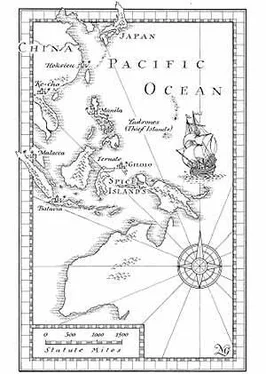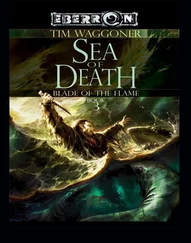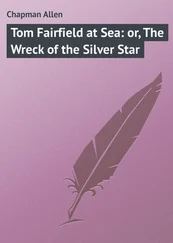Musallam Iskandar was a man of indeterminate age. He was running to fat, with slightly bulging eyes, greying stubble and a scattering of pockmarks on a face whose features hinted at Arab rather than oriental ancestry. He greeted Hector cheerfully in passably good English.
‘Mansur told me that there were foreigners in Pehko,’ he said. ‘I noticed that little jolly boat of yours tied up in the harbour, but I do not see your vessel.’
‘We were forced to run our ship aground farther along the coast,’ Hector explained. ‘The Omoro found us cast away and brought us here.’
‘You were fortunate. The Omoro don’t venture far nowadays.’
‘That big kora kora came across us,’ said Hector, nodding towards the outrigger vessel, which had not stirred since their arrival.
‘On their way back from hongi-tochten against the Sugala, I expect,’ observed Musallam. ‘It’s an annual ritual. The Sultan of Omoro quarrels with his neighbour, the Rajah of Sugala, over who owns the forest and the right to harvest the wild birds. Every year Sultan Syabullah sends a war party to menace his rival, but the raid never solves anything. The Sugala know what’s coming, and they built a palisade around their capital years ago. So they retreat within their defences, the Omoro fire off a few shots and then come back home.’
‘You seem to know a lot about these people,’ Hector observed.
The merchant captain shrugged. ‘I trade in the bird skins. It’s the only item that makes the long voyage here worthwhile, and the forests in this region are the prime sources for God’s Birds, whoever controls them. So I alternate. One year I go to Sugala and collect up all the skins they have in stock. The next year I come here and do the same.’
‘But I was told that the Ternate Sultan has taken control of the trade.’
The shipmaster gave a dismissive wave. ‘My family has been coming to Omoro for more than three generations. My grandfather and father both did business with the old Sultan, and I’m not about to give up the contact.’
Behind the Malaccan captain, Hector could see cargo being ferried ashore from his ship.
‘How long will you stay here?’ he asked.
Musallam rolled his eyes. ‘As long as it takes. The Sultan gets to meet very few foreigners, and likes to talk with them. They are a diversion for him. So the negotiations will drag on for a month at least. They always do.’
‘When you leave, would it be possible that my companions could sail with you? There are about a dozen of them.’
‘Only with the Sultan’s permission. I need his authority if I am to take any passengers.’ The shipmaster gave Hector a shrewd glance. ‘What about you? Do you plan to stay on in Pehko?’
‘There is a woman without whom I cannot leave.’
‘And where is this woman now?’
‘She is living at the palace.’
The captain drew a sharp breath. ‘Meddling in the Sultan’s affairs is ill advised. He may be old, but he resents any interference with his royal prerogatives.’
He turned to watch a dugout approaching the jetty. The canoe was piled with so many bales of cloth that it had taken on an alarming list and looked about to capsize. ‘Excuse me,’ he said, ‘I must attend to the unloading of my vessel. There is much to be done. Doubtless we will meet again. Pehko is a small place.’

IT WAS ON the third morning after that encounter that Jezreel woke Hector half an hour after sunrise, shaking him out of a deep sleep.
‘Hector,’ the big man was saying, ‘the Hollanders have gone.’
‘What do you mean?’ asked Hector. He sat up, struggling to shake off his drowsiness. Jezreel was squatting down beside him. The dim light filtering through the shuttered window highlighted his friend’s look of exasperation.
‘Vlucht and the others. They’ve done a flit.’
Now Hector was wide awake. He scrambled to his feet. ‘Show me,’ he said.
They went to the room that the Westflinge ’s crew used as a dormitory. The sacks on which the men had slept lay scattered on the floor, but there was no one there.
‘Maybe the guards took them away in the night,’ Hector ventured.
‘I don’t think so. They’ve cleared off. Look here.’ In the flimsy thatch wall facing the harbour someone had ripped a large hole. Hector went across and peered out through the gap. Directly opposite him the Malacca trading jong rode quietly at anchor. There was no one to be seen on her deck. He craned his neck and looked in the opposite direction and noticed at once that something was missing. The Westflinge ’s skiff, which had been towed into harbour behind the kora kora when they first arrived, was no longer where it was usually moored against some pilings.
‘They made off with the jolly boat,’ he said. ‘Must have taken it during the night and dropped down on the tide.’
‘And left us in the shit,’ growled Jezreel. ‘The Sultan will fly into a rage when he finds out.’
Hector’s stomach churned at the thought of how this might affect Maria’s situation.
‘We’ve no time to waste. We have to explain to Mansur that we knew nothing about this.’ A sudden thought struck him. ‘Where’s Stolck?’
Together they returned to their own room to find Dan and Jacques both awake. But the corner where Stolck usually slept was empty. He too had left with his countrymen.

‘WHAT WILL HAPPEN to Vlucht and his men if they are caught?’ Hector asked Mansur an hour later. The chamberlain had hurried to the warehouse in response to a message from Hector. For the first time the courtier was genuinely perturbed, and an expression of distaste crossed his face. ‘Traditionally the punishment for defying the authority of the Sultan is death by strangulation. But in this case I fear the culprits are likely to be thrown off a cliff in his presence.’
‘Why the difference?’ asked Jacques, who was listening.
‘That is how the Dutch executed some rebel princes some years ago. The Sultan has said that, given the chance, he is keen to return the compliment.’
‘And what happens if the fall isn’t fatal?’ asked Jacques glumly.
The chamberlain grimaced. ‘If the victim survives, he’s carried up half-alive and thrown over a second time.’ He looked around the little group. ‘His Majesty will want to know exactly how many of you are still here. I think that all of you should appear before him.’
As they made their way across the bazaar to reach the footpath to the palace, Hector noticed a change in the reaction of the market traders. Usually they were friendly and curious, but today they avoided his eye and seemed frightened and wary.
The same tension was palpable when Mansur brought them into the audience chamber in the palace. The courtiers hovered at the outer fringes of the room, clearly reluctant to come near to the Sultan, who was in his usual place, seated among the cushions. It was as if everyone was waiting for a storm to break. Hector looked anxiously about him, searching the farthest corners of the hall, still hoping to catch a glimpse of Maria. But there were no women present. The clock with the hen-and-chicks was now displayed prominently on a tall stand. Clearly the gadget had caught the Sultan’s fancy.
At the Sultan’s right-hand side sat his only son, Prince Jainalabidin. The youngster was dressed even more gorgeously than before, in a dazzling robe of white cotton striped with yellow, embroidered slippers on his feet, and a yellow turban with a small spray of jewels pinned to it. He was staring fixedly in their direction. Hector found it impossible to guess what was going on in the boy’s mind, but he had the uncomfortable feeling that, whatever it was, it was tinged with dislike.
Читать дальше









